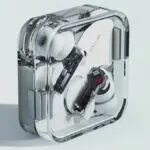
The Samsung Galaxy Note 8 has already broken all pre-order records for a Note device in the US and will be making its way to the country’s retail stores from today. After the ill-fated Galaxy Note 7 last year and the excellent Galaxy S8 and S8+ from earlier this year, the Note 8 is Samsung’s answer to the iPhone X and other bezel-less phones set to invade the market in the next few weeks.
Similar to previous flagship Galaxy devices, the Galaxy Note 8 also features an IP68 certification making it dust and water-resistant. However, before you go around dunking the phone in water, there are a few things you need to know about the Note 8’s water resistant capabilities. In a nutshell, don’t expect Samsung to honor the device warranty due to any water damage. Now that I have your attention, let me first explain to you what the IP68 certification of the Galaxy Note 8 means.
What does the IP68 certification of Galaxy Note 8 stand for?
The ‘IP’ in the ‘IP68’ certification of the Galaxy Note 8 stands for Ingress Protection, with the 68 denoting the level of protection. The ‘6’ in the ‘IP68’ means the Galaxy Note 8 is fully protected against any kind of dust ingress. As for the ‘8’, it denotes the handset is resistant to water ingress for 30 mins for up to 1.5m depth but only in fresh water.
This is the highest level of IP certification available for consumer devices. It is also higher than the iPhone 7 and 7 Plus, which features an IP67 rating. Almost all major Android flagships launched over the last year, including the LG V30, Galaxy Note 7, and HTC U11, feature an IP68 certification. At this point, IP68 certification has pretty much become a standard feature for a flagship smartphone to have so the Galaxy Note 8 is simply following the trend here.
Do note that it is not just the Galaxy Note 8 which is waterproof. The included S Pen is also water-resistant and the device can survive being dunked in water even when the S Pen is not inserted into its slot.
The Fine Print
The important thing to note, however, is that the IP rating of the device does not make it resistant to all and any kind of liquid. Pressurised water can easily breach the water resistance seal of the handset and seep inside it thereby damaging the internals. Similarly, salt/sea water is a strict no-no. Do NOT take your Galaxy Note 8 with you to the beach for swimming thinking it will emerge unscathed. Sea water can cause a lot of damage to water resistant devices. If you do end up dropping your Galaxy Note 8 in salt/sea water, quickly take it out and even if it is working fine, wash it thoroughly with fresh water and then dry it properly. If you spill any other liquid on your Galaxy Note 8, do the same thing as they can wear off the oleophobic coating on its display.
Wear and Tear
The Galaxy Note 8 achieve its IP68 certification by sealing its internals using rubber gaskets. The IP certification of the device will deteriorate over time, though this should not make a huge difference. Most importantly, though, if you drop your Galaxy Note 8 and its frame or the structure of the chassis is compromised in any way, its IP rating can be affected. Similarly, if the front or rear glass panel of the device shatters, the IP rating of the device will be affected.
No Warranty
Despite being IP68 certified and Samsung highlighting the dust and water-resistance capabilities of the Galaxy Note 8, the handset is NOT covered for any kind of liquid damage under Samsung’s one-year limited warranty. So, if you somehow do end up causing liquid damage to your Galaxy Note 8, don’t expect Samsung to replace or fix your phone for free.
Consider the IP68 certification of the Galaxy Note 8 as a protection against accidental liquid spills. Do not keep dunking the phone in pressurised water thinking it will emerge unscathed from it over time. While a light wash under tap water to clean the device is fine, never dunk the phone in deep water for a long period of time as it can negatively affect its IP certification and eventually cause water damage.









